When it comes to art nouveau, Brussels and Victor Horta are preeminent. Art nouveau in Brussels illuminated architecture ahead of the coming 20th century.
Barcelona may have Gaudí and France may claim the École de Nancy, but when it comes to art nouveau in Brussels, Belgium boasts the founder of the art nouveau architecture movement. Beginning in the 1890s, architect Victor Horta and his contemporaries produced a powerful body of work in Brussels that changed the prevailing 19th century esthetic to one of grace, light, and innovation.
Architectural art nouveau in Brussels was a dramatic departure from traditional Flemish gable-centric design. The photo below from S Marks The Spots, is a perfect example of how the new style illuminated the city.
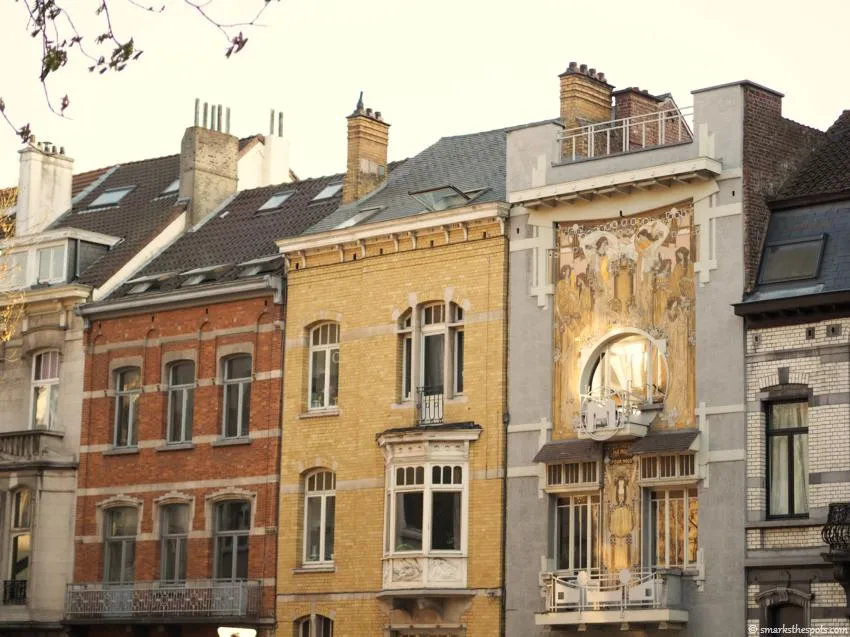
This post contains affiliate links and/or references to our advertisers. We may receive compensation when you click on or make a purchase using these links.
For exemplary art nouveau, Brussels boasts neighborhoods like Bailli, Ixelles, Uccle, and Saint-Gilles, where examples still exist aplenty. At the time, these communities were popular with the bourgeoisie, who could afford the new style and patronize its purveyors. More than a century later, Brussels art nouveau residences and public buildings still showcase the efforts of those who sought to make beauty accessible to all.
What Inspired Art Nouveau in Brussels and Elsewhere?
Art Nouveau, according to Michèle Lavallée, writing for the Grove Dictionary of Art, paved the transition between the historic revivalism (Greek, Gothic, etc.) of the 19th century to 20th century Modernism.
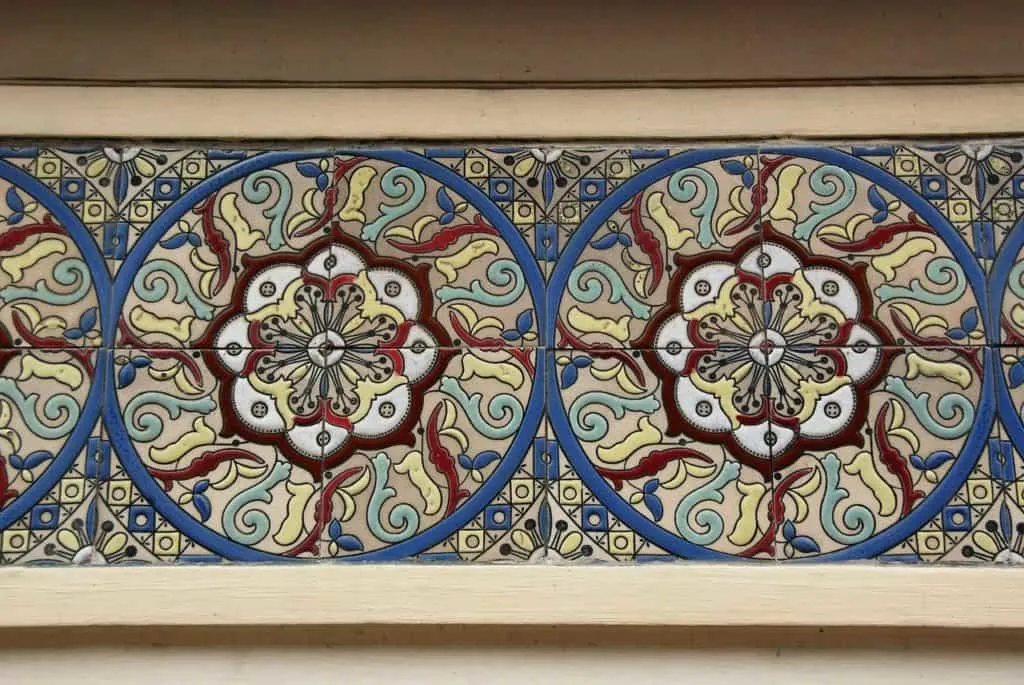
While it’s difficult to pinpoint what inspired art nouveau in Brussels and elsewhere, in the 1880s Horta began working on commercial projects, such as the Royal Greenhouses of Laeken, to add practical and curved embellishments.
By the the time Horta returned to residential design in 1893, a writer for inPan magazine concurrently described a wall hanging done by Hermann Obrist as “sudden violent curves generated by the crack of a whip.” Since then, “whiplash” has been the term used to describe the flowing turns and undulations that characterize the style.
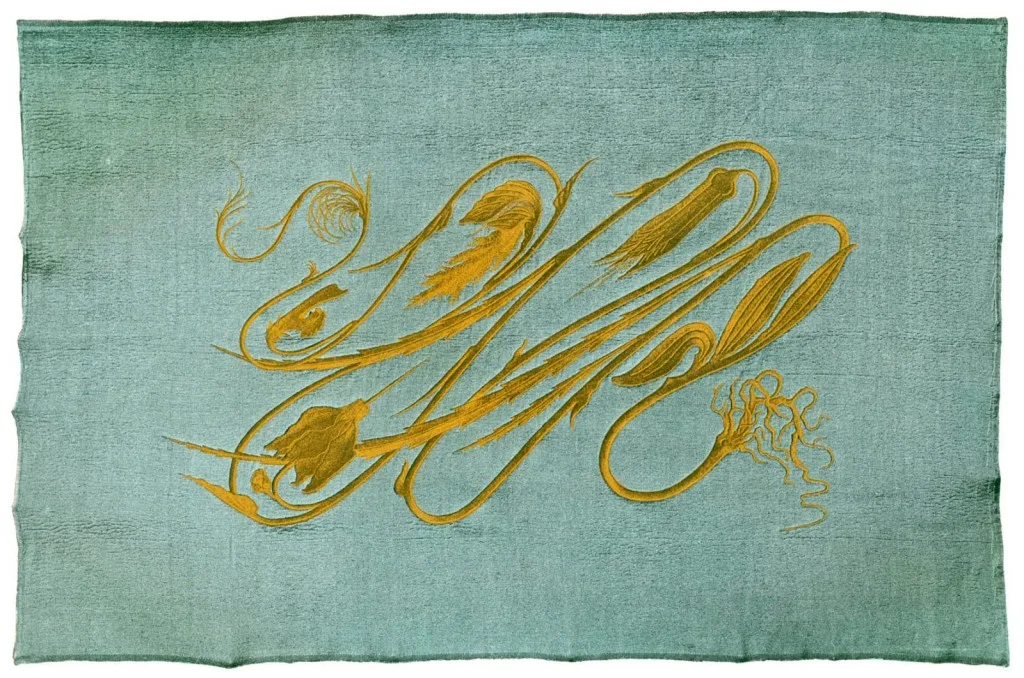
During a visit to Barcelona, our eyes became accustomed to art nouveau elements. We were completely unaware of the detailed history of the movement, much less the role of Brussels architects in founding it, until we arrived in Belgium.
Our first up-close and personal glimpse of art nouveau in Brussels occurred at a restaurant in the Ixelles neighborhood, Brasserie La Quincallerie. Seated on the catwalk level, we felt like we were in a steampunk stage set.
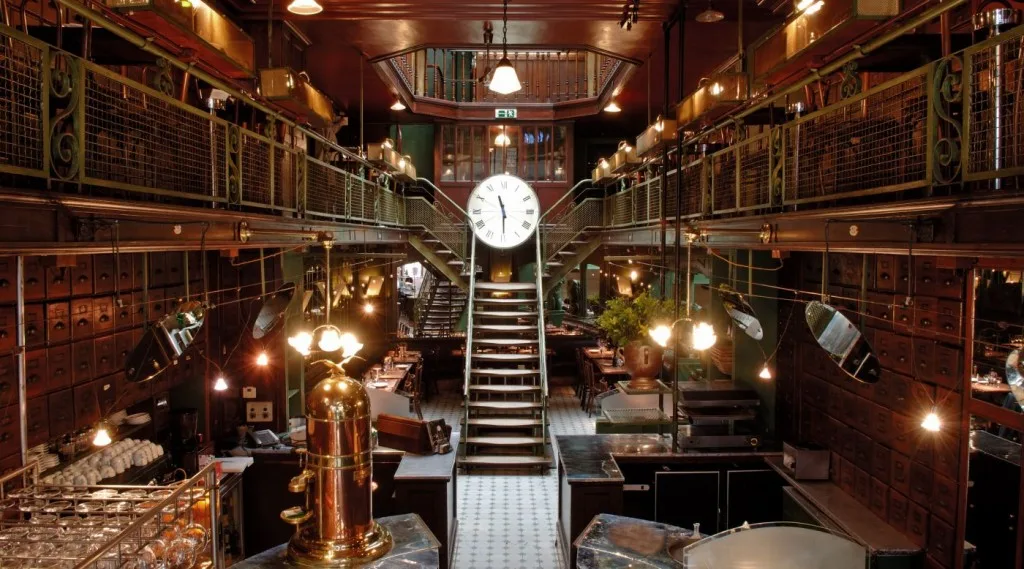
Who was Victor Horta and What Was His Relationship to Art Nouveau in Brussels?
We read from La Quincallerie’s menu that this was a former hardware store, designed by a student of Victor Horta. Who was Victor Horta, and what was his role in the milieu art nouveau architecture Brussels took on so quickly in the 1890s, we wondered? From then, the chase was on.
Victor Horta was a classically trained architect who came to prominence in Brussels after studying design in Ghent, and then working in Paris. When his father’s death prompted a return to Belgium in 1880, he began studies at the Académie Royale des Beaux-Arts, and was chosen by his professor there to collaborate on the Royal Greenhouse commission.
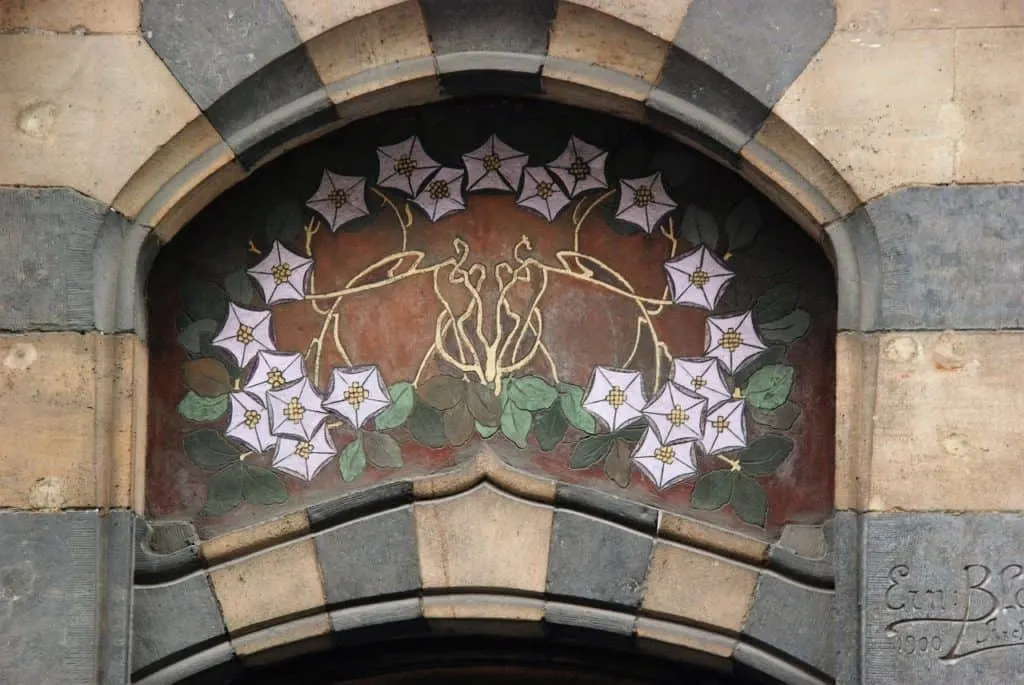
Within 5 years, Horta had received several national design prizes and went out on his own with three residential commissions. By the early 1890s, he held positions as Head of Graphic Design and Professor of Architecture at Université Libre de Bruxelles.
Horta and his colleagues, we learned, strengthened interior structural elements in their buildings using metal, allowing for open, light-filled interiors. Their stylized motifs were drawn from nature – the floral or animal pattern, the feminine silhouette, and the traditional arabesque.
Between 1892 and the first World War, the art nouveau Brussels had originated matured from the flamboyant to the classical, becoming a standard. In acknowledgement, Horta was granted the title of Baron by King Albert I of Belgium in 1932.
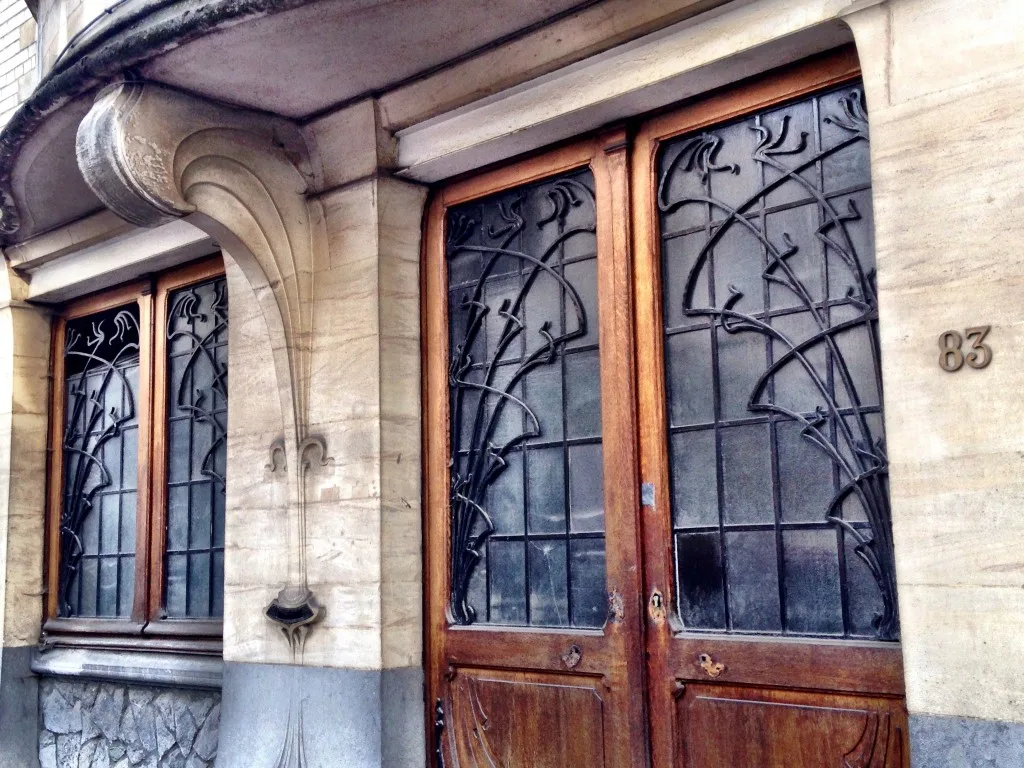
Tip: If you’re in Munich, you’ll want to seek out the German interpretation of art nouveau, Jugendstil. See our write-up: Schwabing: Where the 20th Century Took Hold in Europe.
A dozen ways to immerse yourself in the wealth of art nouveau architecture Brussels has to offer today are as follows:
1. Get to know Victor Horta, the father of art nouveau in Brussels, and perhaps the world, in depth at the Horta Museum.
Horta Museum – located in Victor Horta’s private home and atelier. The two buildings were constructed between 1898 and 1901, with additions in 1906 and 1908. Today, they house the foremost and most personally authentic art nouveau museum Brussels has to offer.
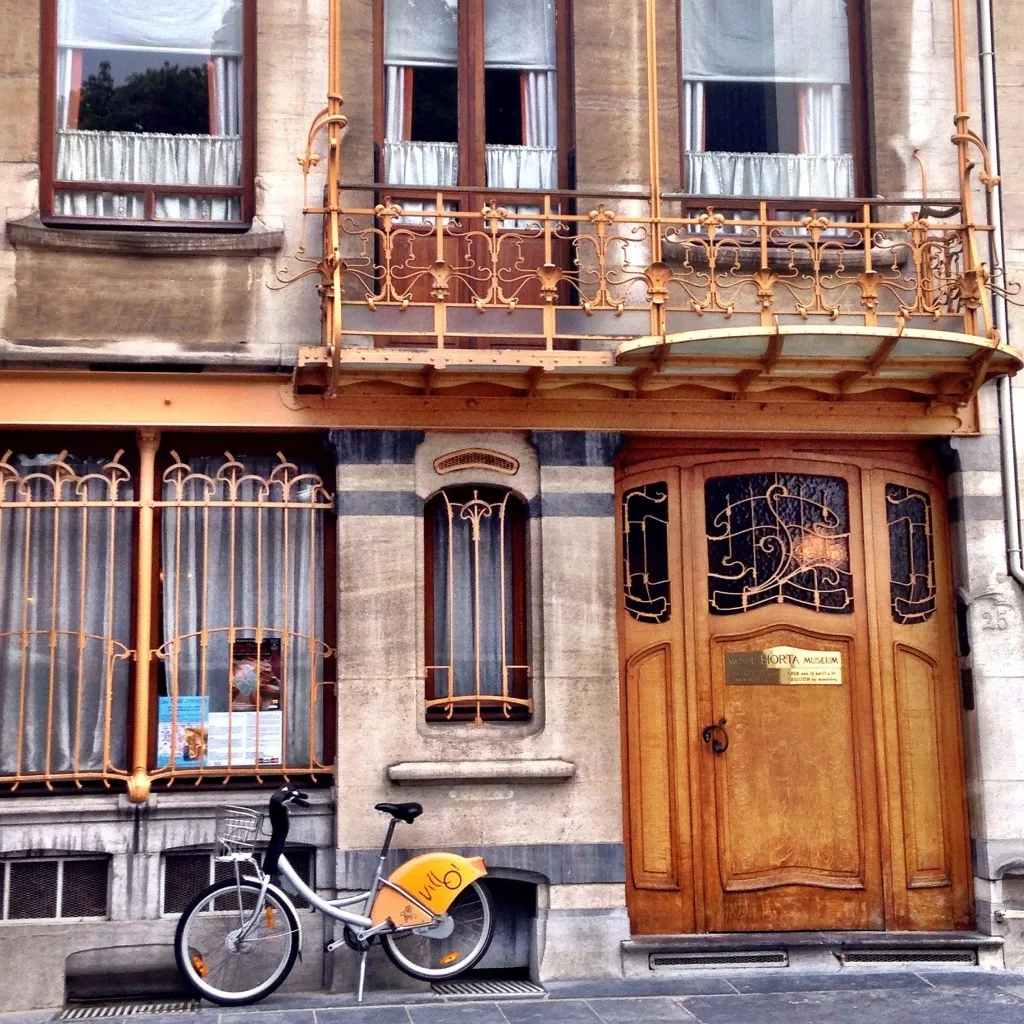
The residence’s interior spaces flank a central staircase which is lit by a glass skylight, allowing light to circulate throughout. The house, although it was built in 1898, is amazingly relevant to the needs of a contemporary lifestyle. In its decorative elements, what inspired art nouveau in Brussels and its derivative movements in Europe and the Americas is readily apparent.
Horta’s gracious gilding, light tile details, and open living concept must have seemed revolutionary to post-Victorians. Since no photography is allowed in the interior, we found an outstanding video which will take you through and introduce you to Horta’s other works:
Victor Horta – Architect and Designer Video:
The Horta Museum is located at Rue Américaine, 23-25, 1060 Brussels (Saint-Gilles). Trams: 81, 91, 92, 97 (place Janson). Bus: 54. Guided tours and private visits available. Reminder: no interior photography allowed. Click here for TripAdvisor reviews and more information.
2. Amble around the Ixelles/Louise neighborhoods on a Brussels Art Nouveau Walking Tour.
Pick up a brochure at the Horta Museum to see 10 additional buildings on the most condensed art nouveau walking tour Brussels offers. Your Brussels art nouveau walking tour map contains a variety of residences and low rise commercial buildings designed by Horta or his associates, Paul Hankar, Albert Roosenboom, Octave van Rysselberghe and Jules Bruneaut.
Horta’s Brussels townhouses are now designated in a UNESCO World Heritage listing for “brilliantly illustrating the transition from the 19th to the 20th century in art, thought, and society.”
Worthy of note on this Brussels art nouveau route are two additional of the three Horta townhouses (his former home housing the museum being the first) designated on the UNESCO list:
a. Hôtel Tassel, Rue Janson-straat 6, 1000 Brussels. According to UNESCO, the founding work of Art Nouveau in Brussels, commissioned by Professor Emile Tassel, designed and built in 1893-4. Horta designed furniture for this house for several years thereafter. From the Wikipedia description: “Two rather conventional buildings in brick and natural stone – on on the side of the street and one on the side of the garden – were linked by a steel structure covered with glass” which functions as a connector and light source.
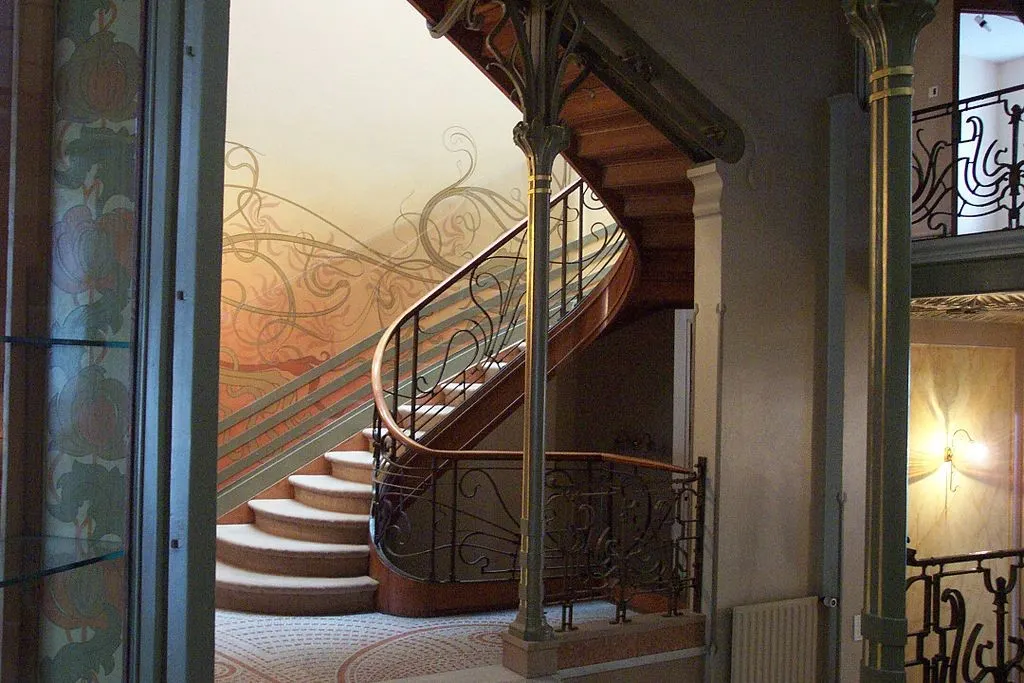
“At the time it was built, the Tassel house was roundly condemned by conservative, Catholic forces in Belgian society, the then Archbishop of Brussels denouncing its curved bay windows as ‘sensuous’ provocations liable to induce thoughts of a pregnant woman’s abdomen.” Brussels: revisiting the magic of Victor Horta, Adrian Bridge, Telegraph, 3 Oct 2011
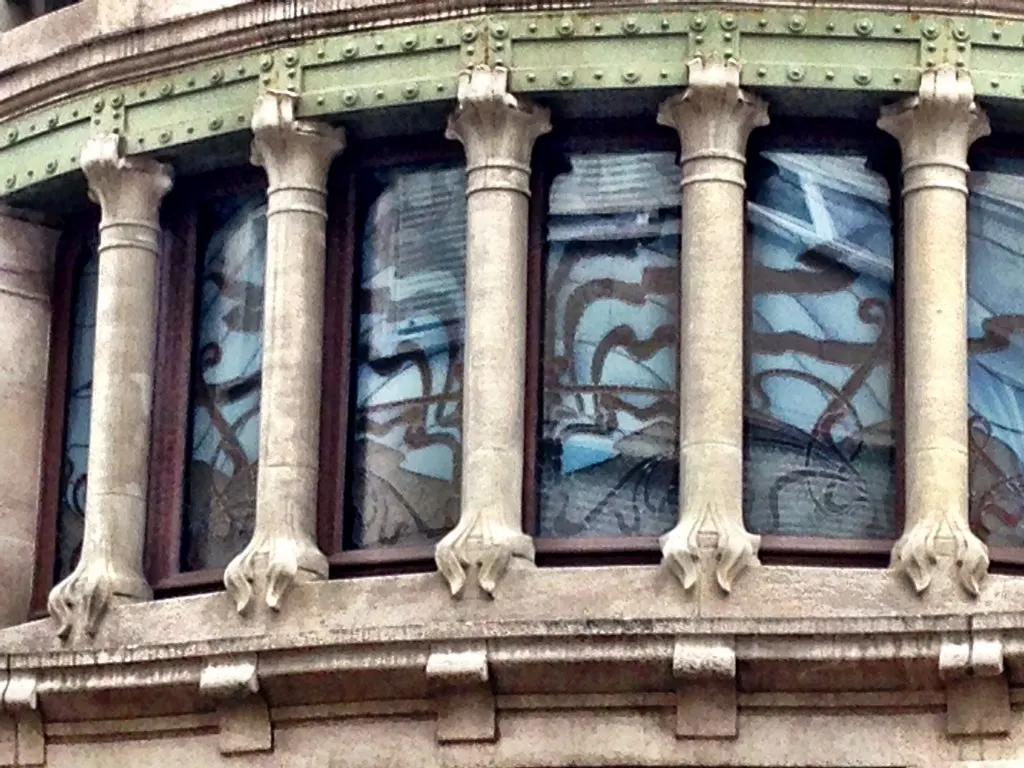
b. Hôtel Solvay, Avenue Louise-Louizalaan 224, 1050 Brussels. Commissioned by Armand Solvay, heir to the chemical company that developed sodium bicarbonate, who granted Horta creative and financial carte blanche. Built from 1895-98, furniture completed in 1903. In 1980, it underwent a massive restoration including glass roofs on the main staircase, facade and interior decoration. Interior is intact with original art and functioning utilities. Still privately owned, but open to the public several times per year.
A 1984 New York Times article noted several innovations in Hôtel Solvay which were firsts in Brussels: first house to be lighted entirely by electricity, first to use glass partitions and skylights to flood the central stairwell, fresh air system via duct network, rotating bathroom sinks empty instantaneously, rooms are laid out to conceal the movements of servants, interior walls move, open and close for public and private use.
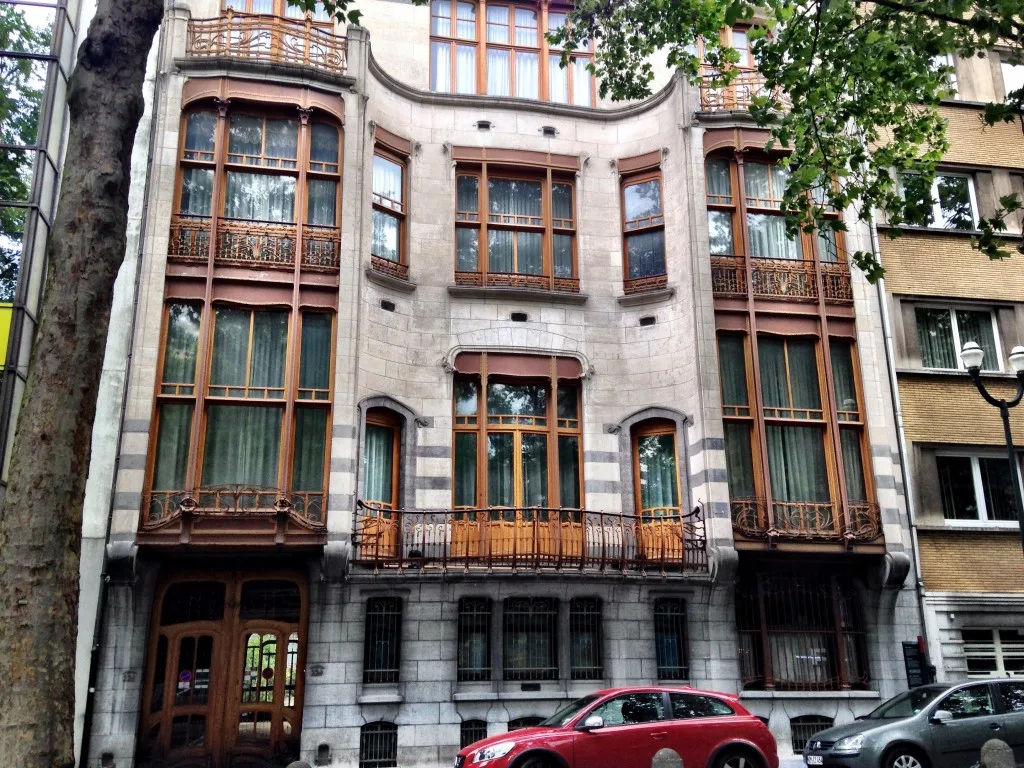
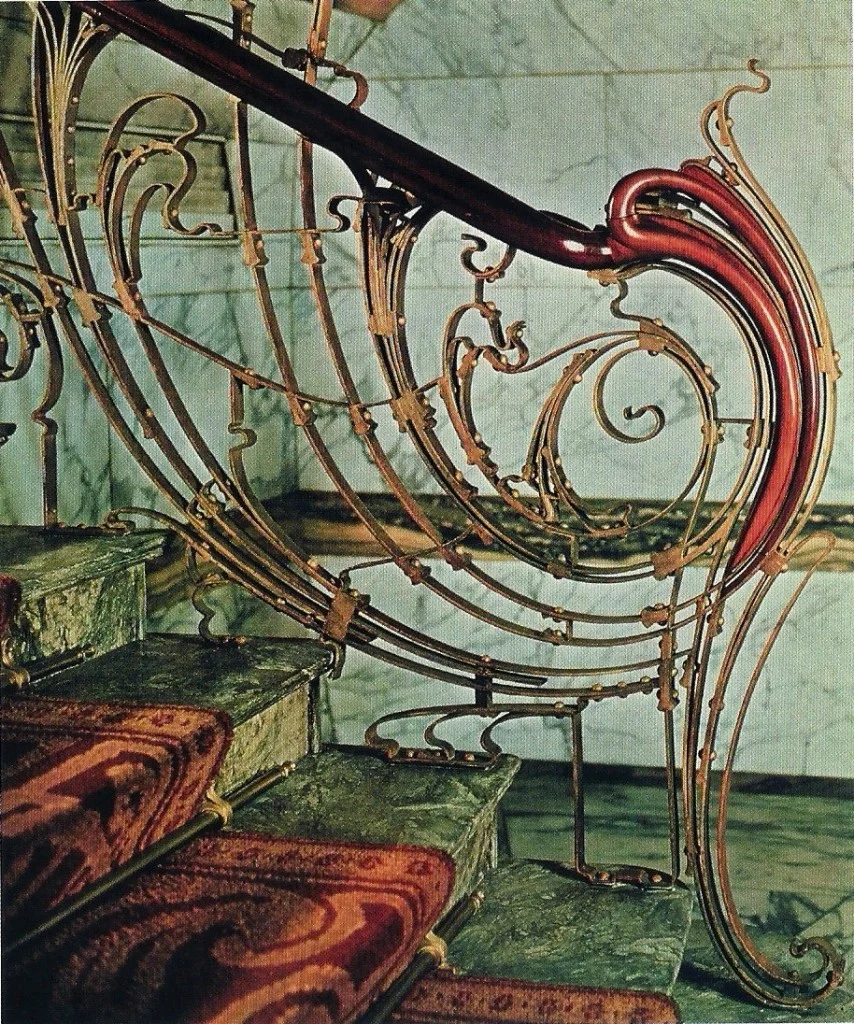
Tip: The most over the top art nouveau residence in Brussels, Maison Saint Cyr, is located on the north side of Square Ambiorix in the Quartier des Squares neighborhood. Designed and built by Gustave Strauven, a 23-year-old protege of Victor Horta. Click here for more information.
3. Take a guided tour of art nouveau in Brussels with a local expert.
For those interested in taking a guided art nouveau tour Brussels is replete with organizations and independent, knowledgeable experts who can add dimension and interesting information.
ARAU Guided Tours L’ARAU (Atelier de Recherché et d/Actions urbaines) offer guided coach and walking tours in French and English on a rotating weekend schedule with lots of variety on the Brussels art nouveau route. Topics: Art deco, modernism and art nouveau in Brussels districts, Horta, commerce and trade, Brussels cuisine. Pre-booking is required. Private group tours can be arranged for any day in six languages.
ARAU guides have a background in urban planning, architecture or art history, with thorough knowledge of Brussels. L’ARAU is a non profit whose objective is “to promote Brussels as a place where people want to live by examining urban development projects and attempting improvements through housing and mixed-function initiatives, adding public space and integrating social classes.” Click here for reviews and more information.
Brussels 3-Hour Art Nouveau Tour – Beginning in Grand Place, this condensed art nouveau Brussels walking tour takes you to eleven of the more prominent art nouveau sites in the city, beginning with the Old England department store building (now the Musical Instrument Museum, see below) and ending at the Victor Horta Museum. Travel by tram to the Bailli village district, which has the largest number of art nouveau buildings in the city and see residence and commercial buildings designed by a variety of architects. Click here for reviews and more information.
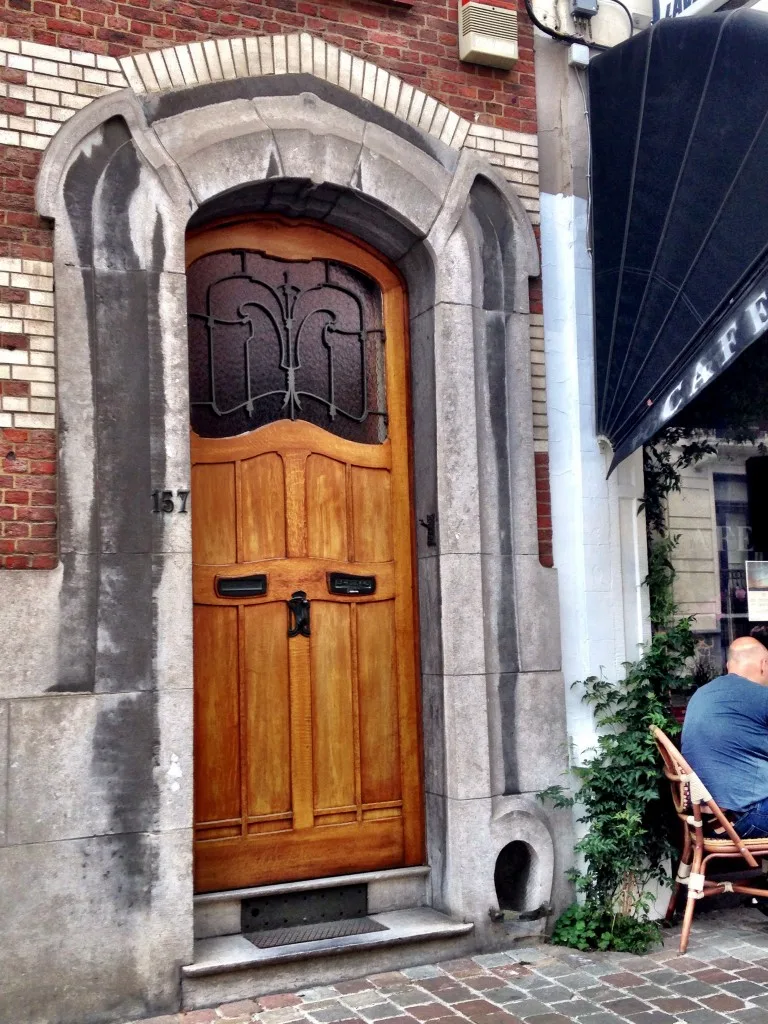
4. Get Inside Art Nouveau Architecture in Brussels with Special Tour Dates.
If there’s one complaint we might have about the accessibility of art nouveau architecture in Brussels, it’s that you can’t get inside! Many of the buildings are privately owned, or they’re businesses which would find visitors disruptive. As such, you are mostly limited to gazing and photographing their exteriors.
However, Visit Brussels sponsors the BANAD (Brussels Art Nouveau and Art Deco) Festival with extended dates for touring of prominent residences whose interiors are not usually open to the public: Hôtel van Eetvelde Herenhuis, Hôtel Solvay, Hôtel Max Hallet, and Maison Autrique Huis. Click here for more information and specific dates for this more comprehensive guided tour of art nouveau in Brussels.
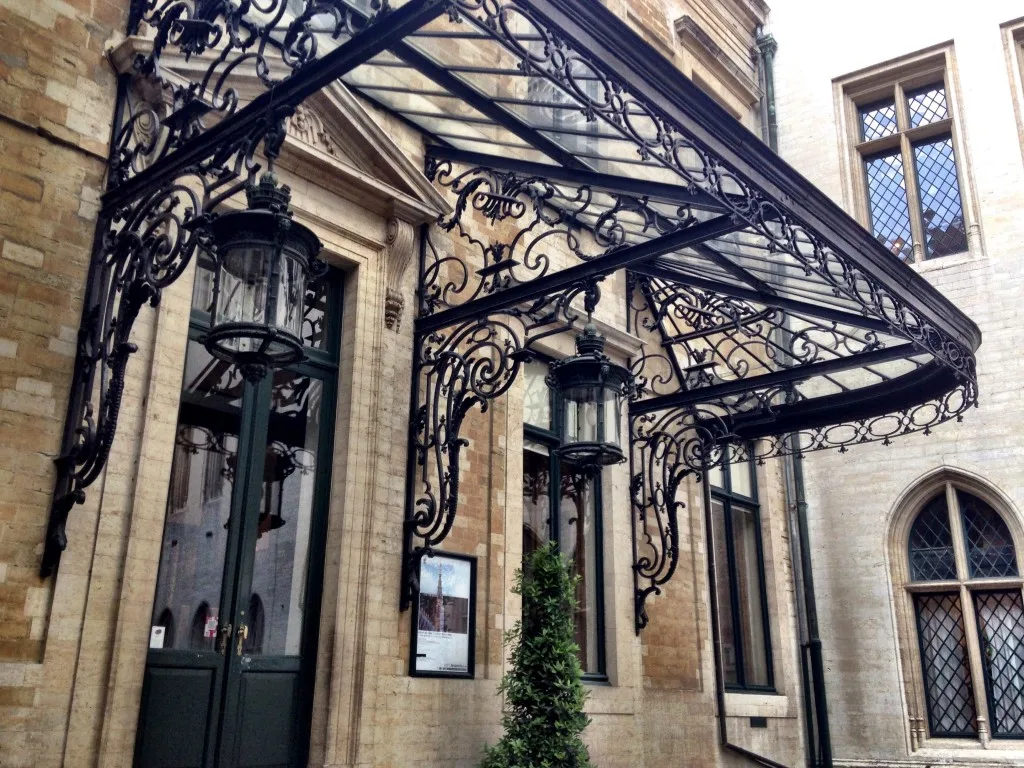
5. People watch over a coffee from the sidewalk Cafe Métropole.
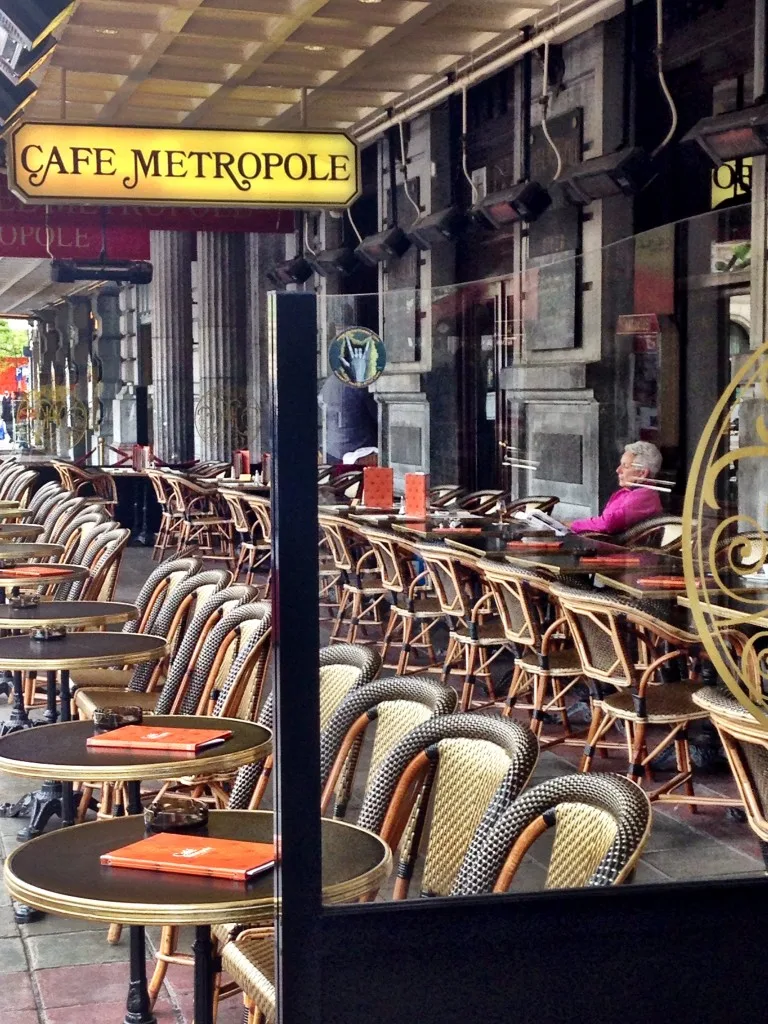
The flip side of the accessibility coin is that much of the art nouveau architecture Brussels has is available to the public because the buildings are in use in the hospitality sector.
The most prominent example of this is probably Café Métropole, a popular spot for people-watching. This is a high end brasserie founded in 1890 as part of the art nouveau hotel Brussels is famous for by the same name. The lavish interior and exterior are all original and the terrace boasts heated seating good for any weather. Place de Brouckère, 31, 1000 Brussels. Tel. (+32) 2 214 26 27. Click here for reviews and more information.
6. Celebrate happy hour A La Mort Subite.
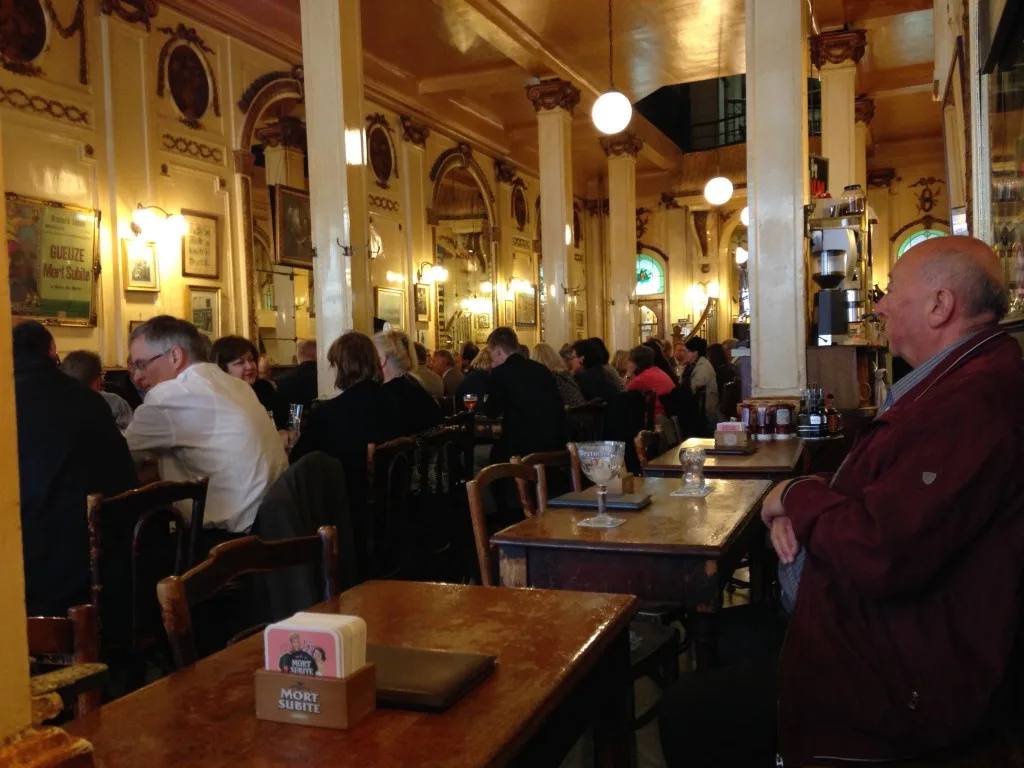
What inspired art nouveau in Brussels to become part of everyday life for the working man? The answer might be found at A La Mort Subite. Formerly an establishment by the name of La Cour Royale, this restaurant was popular with bank employees playing a dice game called “421.” The loser of the last game played before returning to the office was dubbed “Mort Subite” (sudden death). In 1928, the pub was renamed “At the Mort Subite.”
On draft: Cherry, Faro, Peach, Raspberry, Lambic White, Maes Pils, Special Palm, Abbey Dark and Blond beers, Trappist Blond and Dark. Foreign varieties, aperitifs, wines, specialty waters and juices, tonics, teas and coffee. Rue Montagne-aux-Herbes Potagères 7, 1000 Brussels. Tel. (+32) (0)2 513 13 18. Click here for reviews and more information.
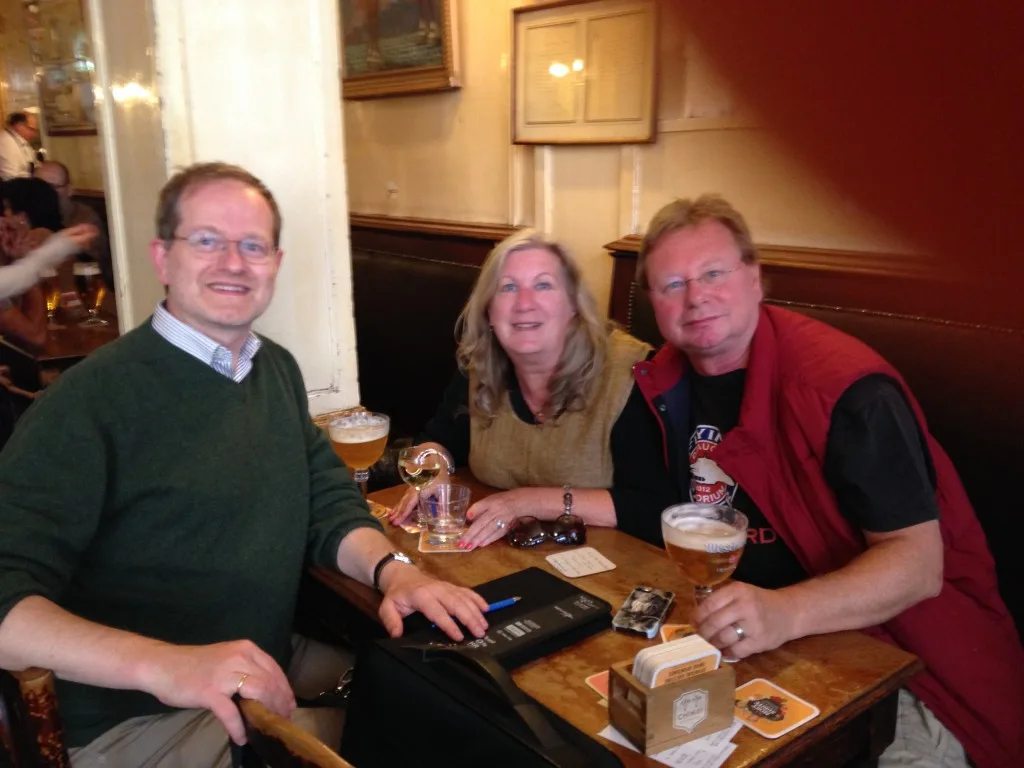
7, 8 and 9. Indulge in atmospheric cuisine de brasserie amid Brussels art nouveau.
Your Brussels art nouveau walking tour is most likely going to require sustenance, which is a great excuse to enjoy cuisine de brasserie – the continental version of pub or bar and grill fare – in an authentic and beautiful interior setting.
brussels art nouveau route
De Ultieme Hallucinatie – Located a bit off the traditional Brussels art nouveau route, this restaurant brasserie is located in an original neoclassical mansion built in 1850. Restructured and redecorated in 1904 by architect Paul Hamesse in a “contemporary geometrical art nouveau style.”
Other rooms influenced by Scottish architect Charles Rennie Mackintosh and French art nouveau. Jugendstil stained glass windows in the orangeries contribute to the eclectic mix of art nouveau variants. Rue Royale 315, 1210 Brussels. Tel. (+32) 2 217 06 14. Click here for reviews and more information.
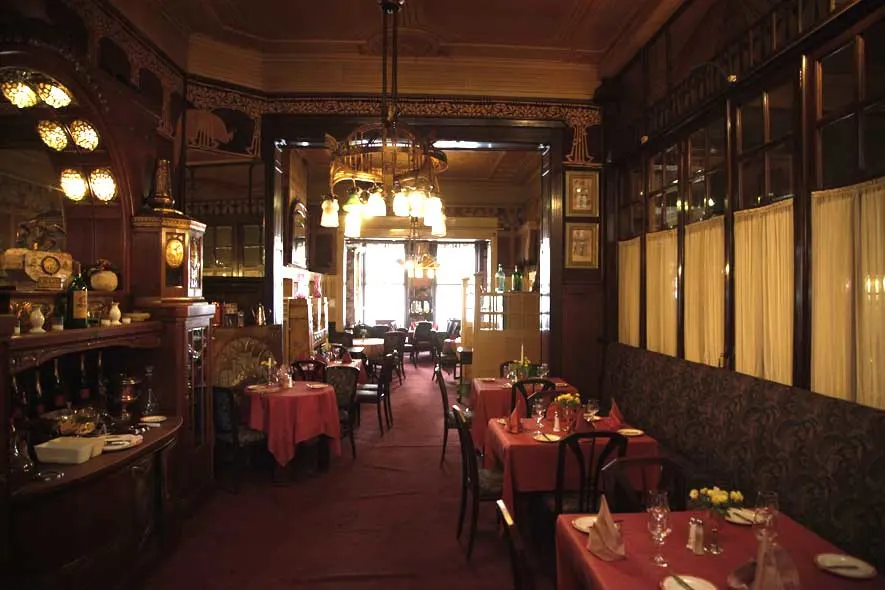
Brasserie La Quincaillerie is where the obsession started with us. Designed by a student of Victor Horta, this former ironmonger’s hardware store is known for its fresh seafood and oysters.
The restaurant maintains its own farm where lambs, pigs, and fowl are raised. Oysters are specially cultivated in two varieties in a collaboration with growers, and their House Beer is a private brew of finely hopped triple top-fermented beer.Rue de Page 45 , 1050 Brussels (Ixelles). Tel. (+32) 02 533 98 33. Click here for reviews and more information.
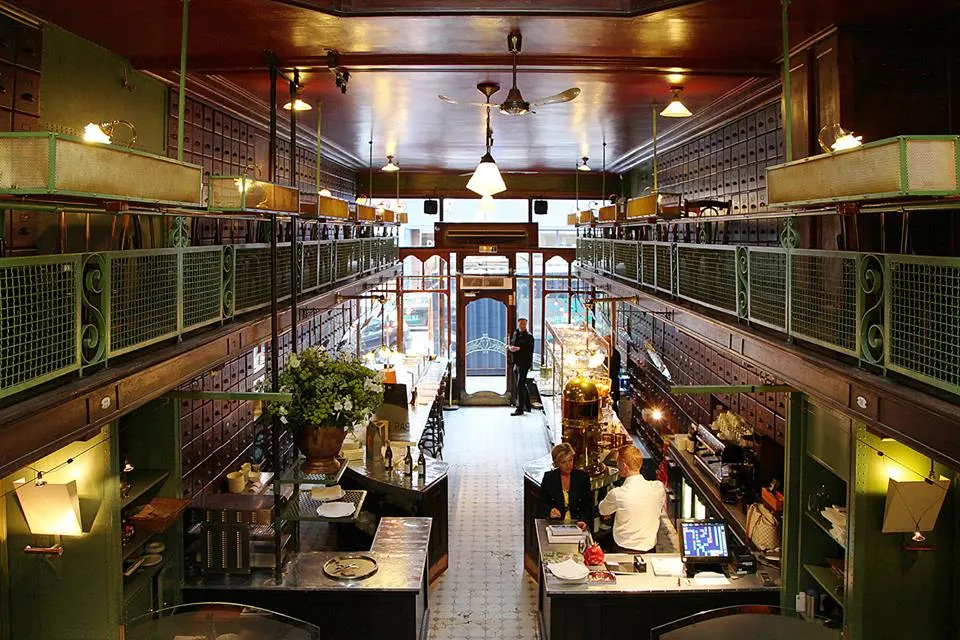
Le Cirio – Dating from 1886, a typical Belgian brasserie frequented by Jacques Brel. The half in half (half champagne and half white wine) is a specialty, and we can attest to its deliciousness, a well as its blessedly moderate prices! Menu items range from appetizer size, croques and baguette sandwiches, pasta and traditional Belgian entrees such as waterzooi (a kind of chicken stew, great comfort food).
Try the steak à l’americaine (inexplicable name, sort of like steak tartare, but comes on the plate looking like flattened raw hamburger. Hint: mix the accompanying condiments into it, and it’s pretty tasty.) Rue de la Bourse 18, 1000 Ville de Bruxelles. Tel. (+32) 025 12 13 95. Click here for reviews and more information.
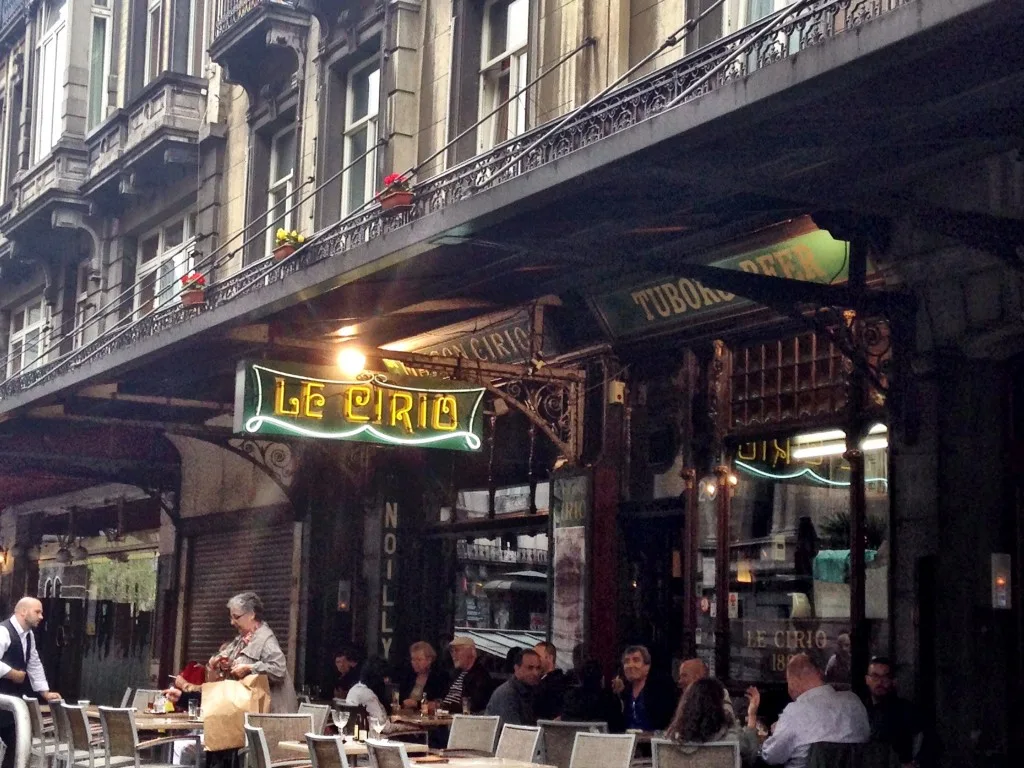
10. Make Time on Your Brussels Art Nouveau Walking Tour to Shop for Personal Treasures.
Art nouveau Brussels style includes shopping at many of the vintage outlets scattered around the city. We liked the antique district in La Sablon, for example. But a true art nouveau shopping pilgrimage must include Senses Art Nouveau.
This famous art nouveau shopping destination offers originals and reproductions, jewelry, gifts and accessories, starting from under 25€ to well over 250€.Rue Lebeau 31, 1000 Ville de Bruxelles. Tel. (+32) 025 02 15 30. Click here for TripAdvisor reviews and more information.
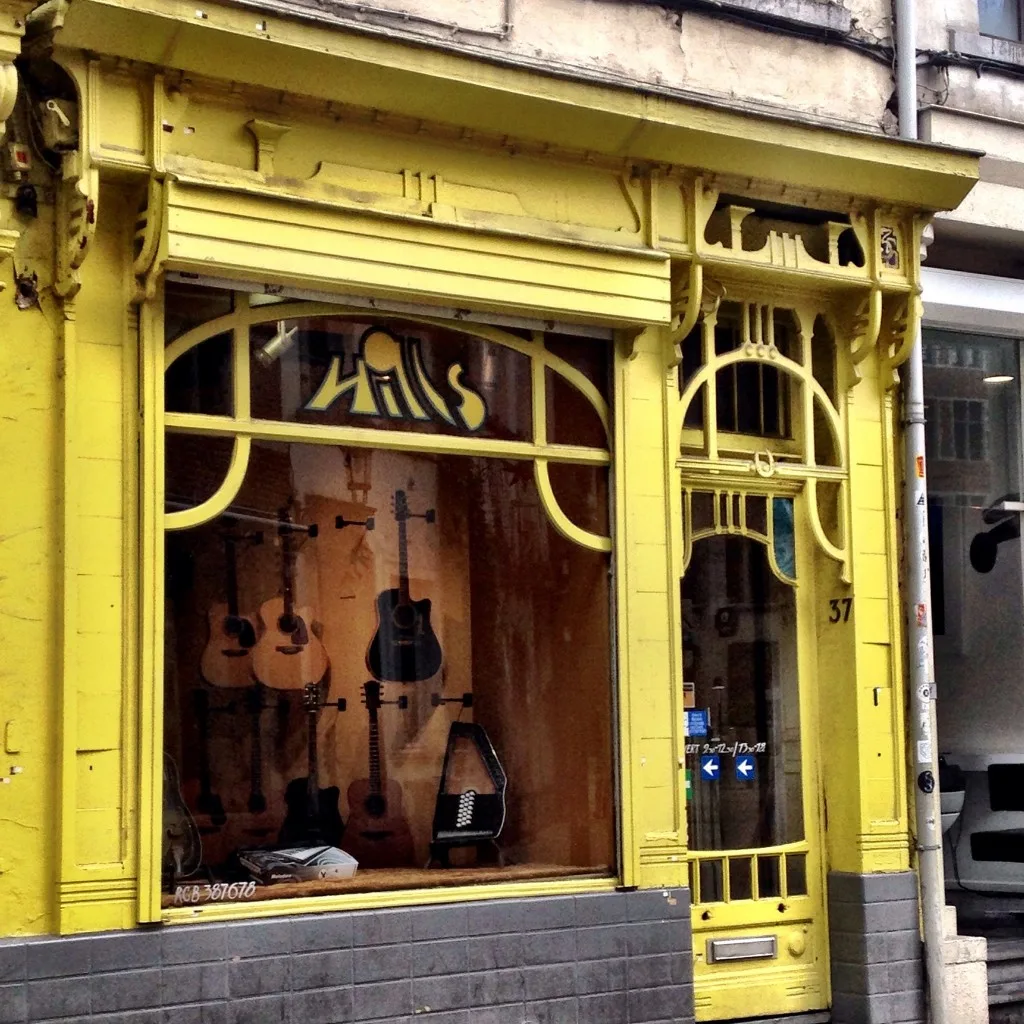
11. Experience the multi-dimensional aspects of art nouveau in Brussels.
If you’d like to while away an afternoon in an art nouveau museum, Brussels delivers you a couple of wonderful options.
Musee Fin-de-Siècle, opened in 2013, offers a multi-disciplinary, dynamic approach to the creative arts from 1868-1914 in partnership with the Royal Museums of Fine Arts, the Royal Library, the Royal Conservatory of Brussels and several foundations. Presents art nouveau architecture with integrated 3-D images of six houses. Rue de la Régence/Regentschapsstraat 3, 1000 Brussels. Tel. (+32) 025 08 32 11. Click here for reviews and more information.
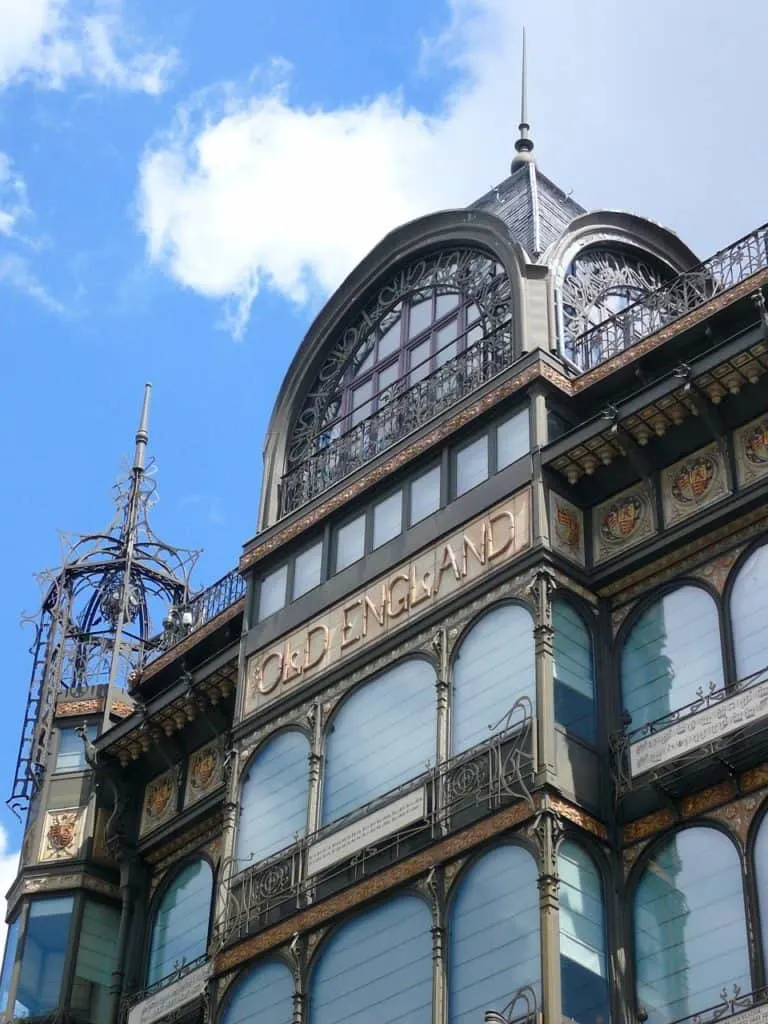
Musical Instrument Museum, located in the former Old England Department Store building, designed and built in 1899 by Paul Saintenoy, a contemporary of Victor Horta, who was a professor of the history of architecture at the Academie Royale des Beaux-Arts for thirty years. The landmark building features iron structural elements designed to mimic stems and vines in support of wide expanses of glass contributing to its light-filled interior, and allowing customers to window-shop from the street. Click here for reviews and more information.
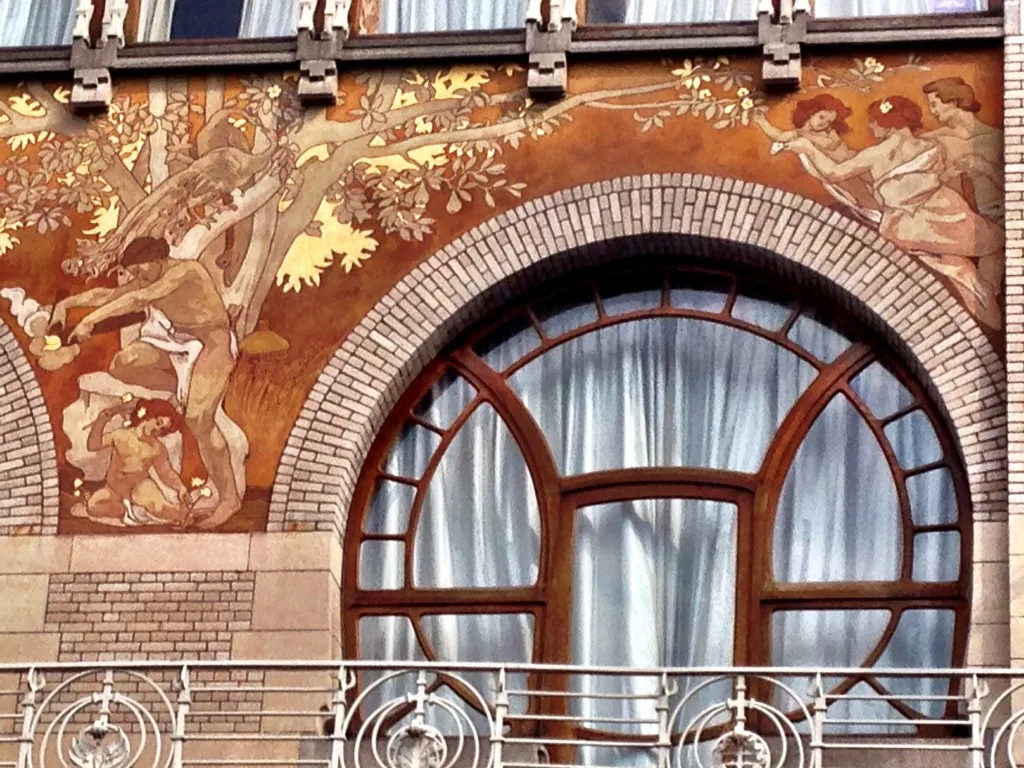
12. Spend the night in an art nouveau hotel Brussels is famous for.
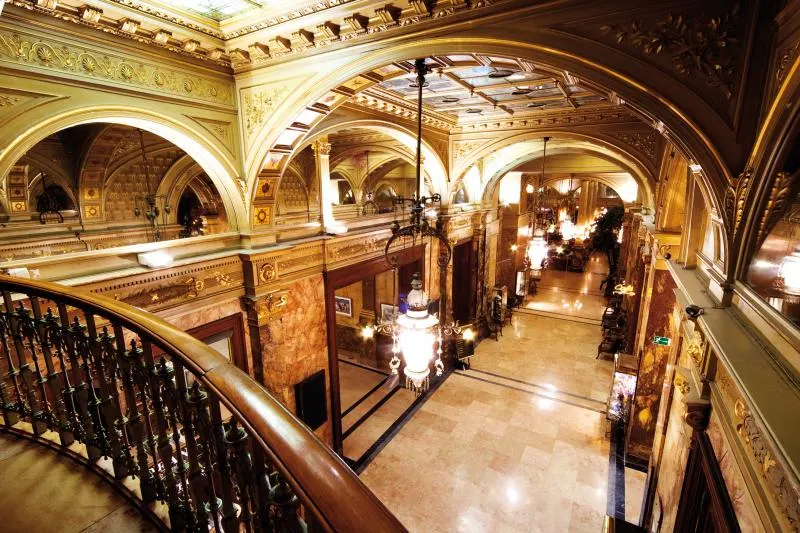
Hotel Métropole, Place de Brouckère 31, B-1000 Brussels. Tel. (+32) 2 217 23 00 Designed by French architect Alban Chambon with Empire influences, stained glass, mahogany, teak, marble and bronze notes. One of the first hotels with lifts, electricity and central heating in Europe. Requisitioned by the Germans during WWII, and later by the Allies. Award-winning restaurant L’Alban Chambon (2 red chef’s hat and 16/20 in GaultMillau culinary guide). Click here for reviews and more information.
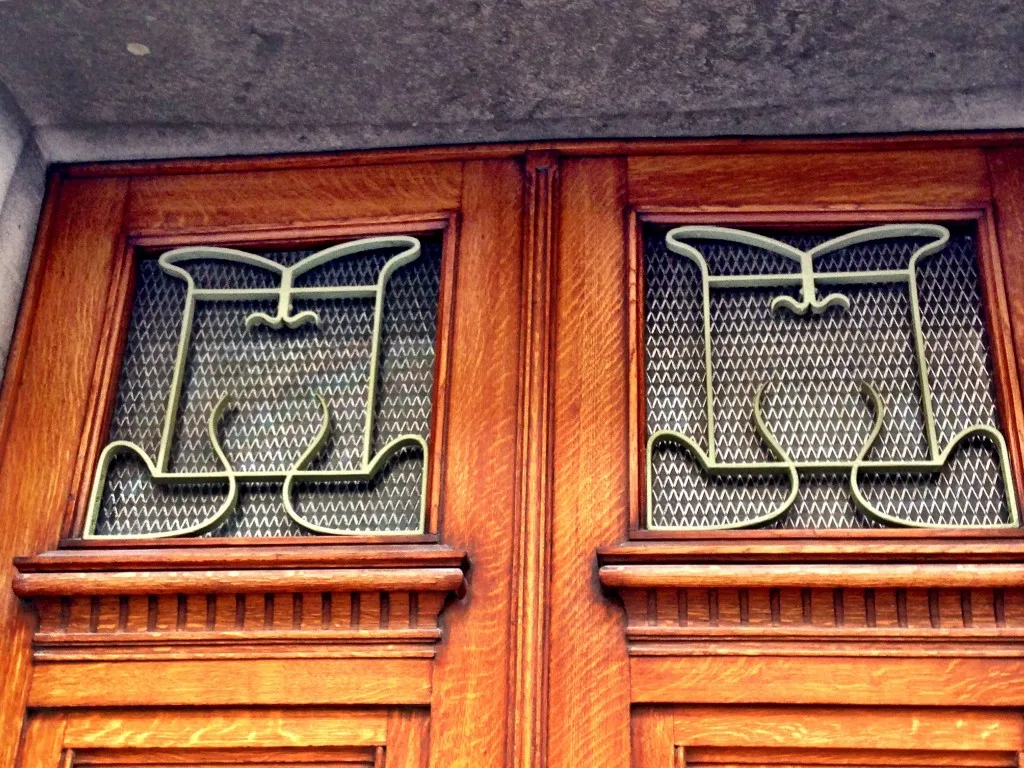
Made in Louise Hotel – In the middle of the Ixelles and Sant Gilles neighborhoods, this 20th century townhome boasts 48 rooms and a fresh, light-filled interior that was renovated by a mother, brother and sister team in 2011. Rue Vedt, 40, Ixelles. Tel. +32 2 537 40 33. Click here for reviews and more information.
Maison Flagey – In the Ixelles ponds neighborhood next to the Forest de Soignes, this townhome B&B with five bedrooms is perfectly located to walk to Avenue Louise and a host of famous restaurants nearby. 39, Avenue General de Gaulle, 1050 Brussels. Tel. +32 496 24 28 23. Click here for reviews and more information.
Pinnable Images:
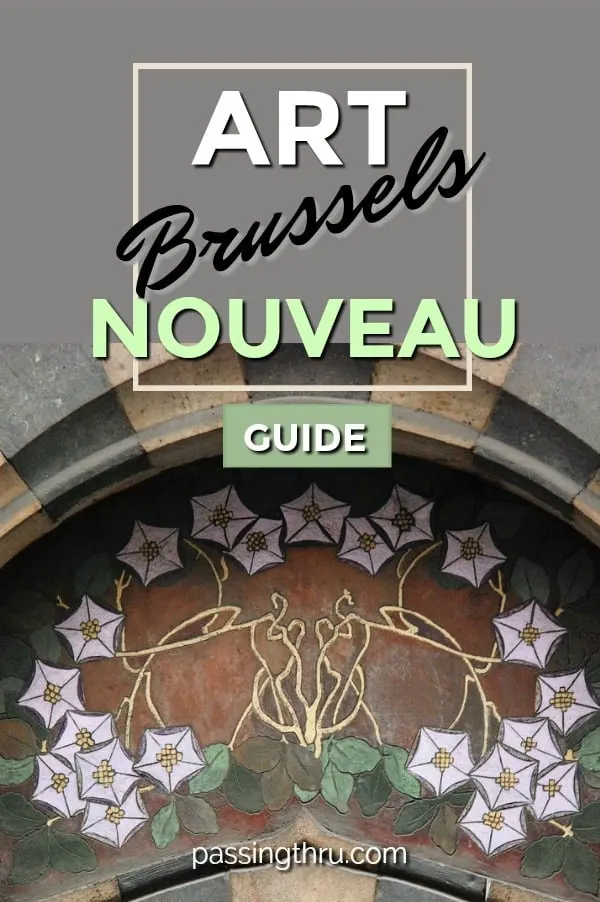
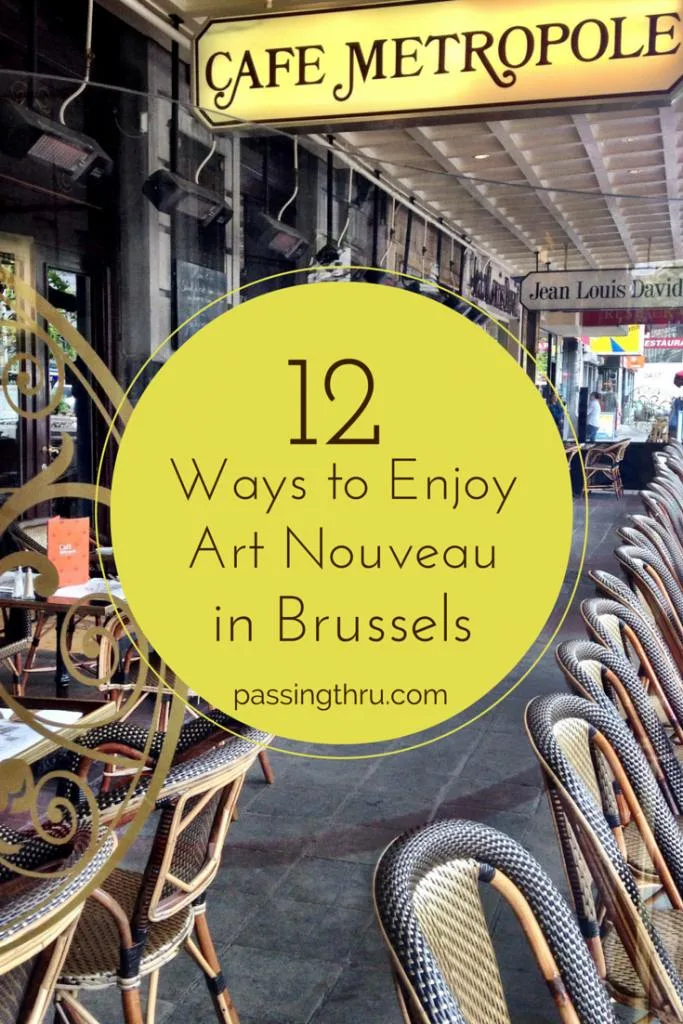
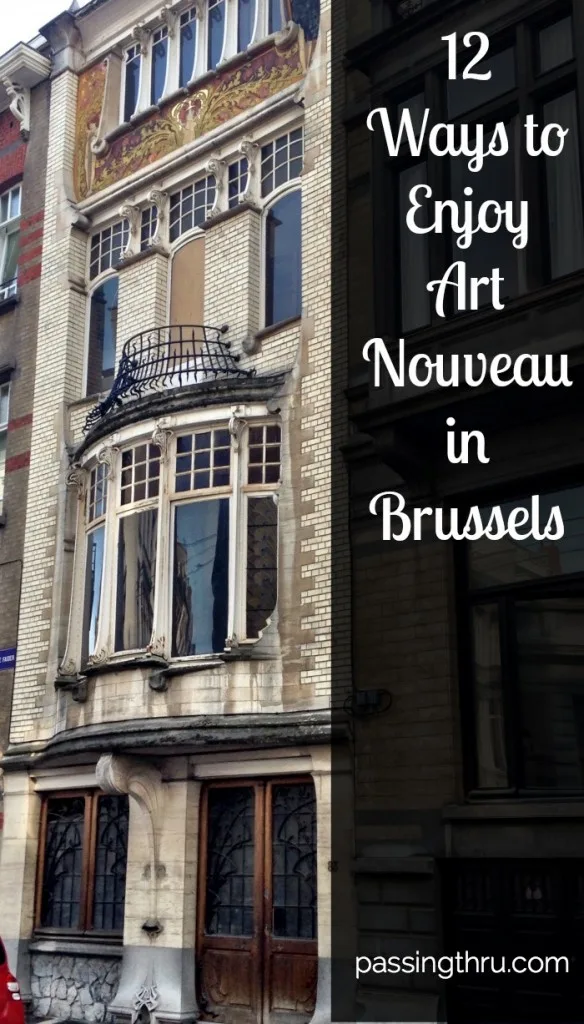
Tips for Trip Success
Book Your Flight
Find an inexpensive flight by using Kayak, a favorite of ours because it regularly returns less expensive flight options from a variety of airlines.
Book Your Hotel or Special Accommodation
We are big fans of Booking.com. We like their review system and photos. If we want to see more reviews and additional booking options, we go to Expedia.
You Need Travel Insurance!
Good travel insurance means having total peace of mind. Travel insurance protects you when your medical insurance often will not and better than what you get from your credit card. It will provide comprehensive coverage should you need medical treatment or return to the United States, compensation for trip interruption, baggage loss, and other situations.Find the Perfect Insurance Plan for Your Trip
PassingThru is a participant in the Amazon Services LLC Associates Program. As an Amazon Associate I earn from qualifying purchases.
To view PassingThru’s privacy policy, click here.

Where to Stay in Brussels: Choose Among the Best Places to Stay in Brussels with Tips on Best Area to Stay in Brussels for Visitors | Passing Thru
Friday 31st of August 2018
[…] of these neighborhoods would be the best place to stay in Brussels if you’re looking to hunt down the many excellent examples of art nouveau architecture which remain intact throughout the […]
Phyl Doppelt
Monday 2nd of July 2018
Than k you for that thorough and original Guide to Brussels - inspired to follow in your footsteps !! You also had a guide to Capitals of Eastern Europe including Scandinavia and the Baltic States and I can' t find it now. Please send me the link. Enjoy your 4th of July with Family and friends and Betsie take care of yourself. Phyl.
Betsy Wuebker
Monday 9th of July 2018
Hi Phyl - The Eastern Baltic recommendations we have are in this post: https://passingthru.com/blog/off-the-beaten-path-europe-underrated-destinations/ Let me know how you do with your planning.
Alex
Sunday 26th of July 2015
This is a great article. My boyfriend and I are currently cycling our way through The Netherlands heading southward to Belgium. We're still debating if we should go to Brussels because so many Europeans speak poorly of it ????. Articles like this make me want to try it out. How long were you there?
Betsy Wuebker
Monday 27th of July 2015
Hi Alex - We actually had two recent stays: one for a week, and then one for ten days several weeks later. Brussels is really underrated, at least what we'd heard beforehand. It's one of our favorite European cities now.
Rossana Wyatt
Thursday 23rd of July 2015
The architectural details and embellishments throughout are absolutely spectacular, I would have loved to do this tour! Wonderful photos, thank you for such a great post and the information about Victor Horta; love learning historical details!
Betsy Wuebker
Thursday 23rd of July 2015
Hi Rossana - So glad you enjoyed it. We're very taken with our new friend, Mr. Horta, too. :)
Anita
Thursday 23rd of July 2015
Another great post, Betsy. I've really enjoyed the Horta houses and Art Nouveau sprinkled all around Brussels on my past visits, but but would love to return for a more in-depth exploration...especially if it includes a stop at La Quincallerie!
Betsy Wuebker
Thursday 23rd of July 2015
Hi Anita - Two words about La Quincallerie: arrive hungry. We did not and could only eat appetizers. What a waste! We won't make that mistake again!